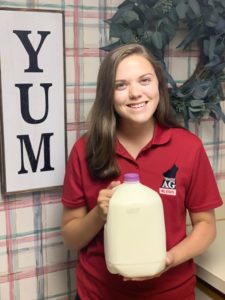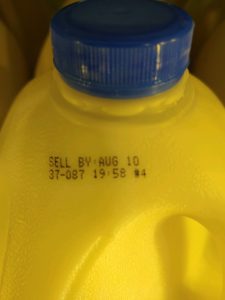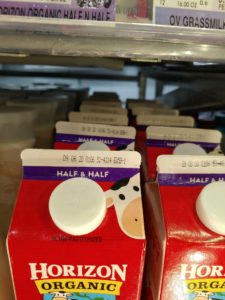Know the Code
go.ncsu.edu/readext?720173
en Español / em Português
El inglés es el idioma de control de esta página. En la medida en que haya algún conflicto entre la traducción al inglés y la traducción, el inglés prevalece.
Al hacer clic en el enlace de traducción se activa un servicio de traducción gratuito para convertir la página al español. Al igual que con cualquier traducción por Internet, la conversión no es sensible al contexto y puede que no traduzca el texto en su significado original. NC State Extension no garantiza la exactitud del texto traducido. Por favor, tenga en cuenta que algunas aplicaciones y/o servicios pueden no funcionar como se espera cuando se traducen.
Português
Inglês é o idioma de controle desta página. Na medida que haja algum conflito entre o texto original em Inglês e a tradução, o Inglês prevalece.
Ao clicar no link de tradução, um serviço gratuito de tradução será ativado para converter a página para o Português. Como em qualquer tradução pela internet, a conversão não é sensivel ao contexto e pode não ocorrer a tradução para o significado orginal. O serviço de Extensão da Carolina do Norte (NC State Extension) não garante a exatidão do texto traduzido. Por favor, observe que algumas funções ou serviços podem não funcionar como esperado após a tradução.
English
English is the controlling language of this page. To the extent there is any conflict between the English text and the translation, English controls.
Clicking on the translation link activates a free translation service to convert the page to Spanish. As with any Internet translation, the conversion is not context-sensitive and may not translate the text to its original meaning. NC State Extension does not guarantee the accuracy of the translated text. Please note that some applications and/or services may not function as expected when translated.
Collapse ▲Jana Hunter our summer student assistant, a junior in Agricultural Education at NC State University, produced a short video on how to support local farmers. She strongly encouraged buying local. She says if you have a choice, buy products from our county, area and state.
One place she suggested you do this is in the dairy section of the grocery store. You can tell where a dairy product was produced by looking at the codes printed on the cartons and jugs. There is more there than the expiration date. This may take some checking and also using your computer to figure out, they may look like random numbers, but there is a code.
The state code number for dairy products produced in North Carolina is 37. Sometimes this isn’t easy to find. The first two numbers of the code range from 0-56 and this represents the state. These codes were assigned alphabetically, Alabama is 01, South Carolina is 45 and Virginia uses number 51.
There is also a plant code on many of the packages. This code is usually a three, four number or six number series after the state code. It is sometimes divided by an (-) hyphen. Not all stores give you options, you may only get the store brand, but when you get the choice, Jana suggests you reach for those from North Carolina.
Remembering that 37 is for North Carolina a good place to start. If you want investigate more, check out the website Where is My Milk From? By searching the complete code you can find the specific dairy.
I checked out several milk products at local stores. One coded 51-4114 was produced in Mt. Crawford, Virginia and 37-087 was from High Point, North Carolina.
Jana had a couple more ideas on her video on how you can help a farmer. One obvious one is to buy local produce when you can. Look for farmers markets, roadside stands, and locally grown vegetables in our grocery stores.
One final suggestion from Jana: Thank a farmer for what they’re doing. When you see them …say “Thank You.”
Source: Cheryle Syracuse, Family and Consumer Science staff member at N.C. Cooperative Extension, Brunswick County Center






